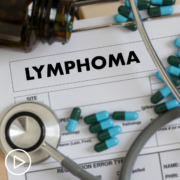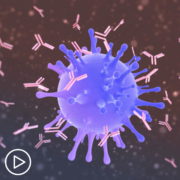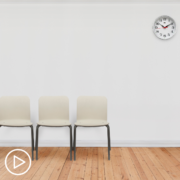How Does Watch and Wait Work During Remission?
How Does Watch and Wait Work During Remission? from Patient Empowerment Network on Vimeo.
What happens with watch and wait during remission? Cancer patient Lisa Hatfield and expert Dr. Tycel Phillips from City of Hope explain remission and what patients can expect for monitoring and appointments during periods of remission.
See More from START HERE Follicular Lymphoma
Related Resources:

|

|

|
Transcript:
Lisa Hatfield:
Once you complete initial treatment and your doctor tells you you are in remission or no further treatment is needed at this time, you may feel both happy and/or concerned about how frequently you will be seen during this remission period. Perhaps it was a relief to go to your doctors’ appointments and hear everything is looking good – or on the flip slide, you may be glad to get back to “normal” life and not have your schedule revolve around appointments. Either way, you will be seeing your doctor at regular intervals. Listen as Dr. Tycel Phillips from the University of Michigan Rogel Cancer Center explains what he does with his patients:
Dr. Tycel Phillips:
The recommendation is really just clinical observation, meaning what I call well-being visits. Meaning I will see you in clinic at least every three months for the first year after completion of therapy. We do a system assessment, we’ll do a physical exam, we’ll do labs. Unless there is really something that at the completion of therapy that I’m concerned about, we won’t typically do any imaging.
We reserve imaging until there is a concern at some point, whether you have symptoms, there’s a lab issue, or there’s some other finding that comes up that means that we have to repeat pictures. So those visits I’ll do typically every three months for the first year, spaced out that every four months for the second year, post-treatment. And then every six months up until about year four. And then it’ll become a yearly visit thereafter, as long as you continue to remain well without symptoms and nothing on an exam that’s concerning.
Lisa Hatfield:
As Dr. Phillips says, you can expect to see your doctor every 3 months for the first year of remission but always discuss this with your healthcare team as your hospital/treatment center may have a different cadence. The amount of follow-up depends on factors such as the treatment you have had, how long it’s been since you completed treatment, and if you were treated as part of a clinical trial.
Sources:
- https://powerfulpatients.org/2022/03/22/monitoring-follicular-lymphoma-patients-during-remission/
- https://lymphoma-action.org.uk/about-lymphoma-treatment-lymphoma/remission
Share Your Feedback:
Create your own user feedback survey









